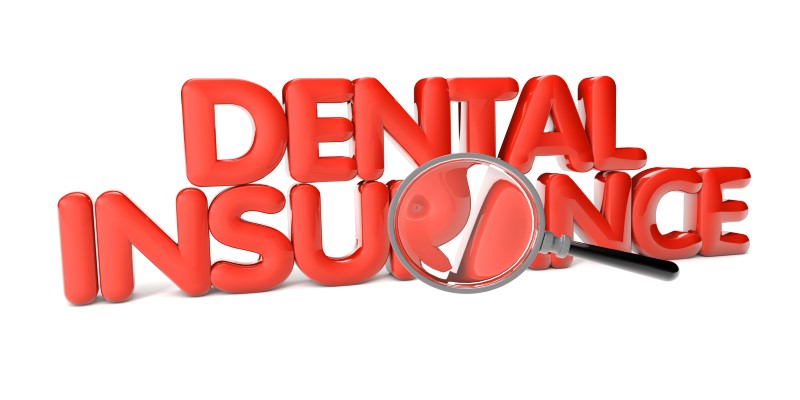Are Dental Premiums Tax-Deductible? A Quick Guide to the Rules
Dec 13, 2024 By Pamela Andrew
Dental insurance is one of those health-related expenses that many people overlook when it comes to filing taxes. Most of us are aware that medical costs, like hospital stays and surgeries, might qualify for tax deductions, but what about dental expenses? You might wonder if dental insurance is tax deductible. The short answer is that it depends on your specific circumstances.

In this article, we will look at how dental insurance premiums may or may not be tax-deductible when you can claim those allowances and the different scenarios in which dental insurance can actually benefit you at tax time. By the end of this guide, you should have a clear idea of how dental coverage affects your taxes and what you need to do to maximize its tax advantages.
What Makes Dental Insurance Eligible for Tax Deductions?
Dental insurance can qualify for tax deductions, although there are attached conditions. Basically, the IRS allows its citizens to deduct medical expenses, which include dental insurance premiums and other related costs, provided certain conditions are met. Here is a breakdown of what qualifies dental insurance for tax deductions:
Itemized Deductions
Premiums for dental insurance are only deductible if you itemize deductions instead of taking the standard deduction. Itemizing allows you to list individual medical and dental expenses, which can help you incur potential tax savings. Those who decide to take the standard deduction, however, cannot list dental premiums as dental premiums are only deductive claims allowed for itemized filers, who can claim medical-related expenses as deductions.
Medical Expense Threshold
To qualify, total medical expenses, including dental, must exceed 7.5% of your adjusted gross income (AGI). Above this threshold only are costs deductible. So if your AGI is $60,000, only expenses over $4,500 can be deducted; you would thus have a partial deduction on medical and dental expenses above this amount.
Unreimbursed and Out-of-Pocket Costs

Deductible dental expenses must be unreimbursed and paid out-of-pocket. Employer-sponsored plans using pre-tax dollars are not deductible. Only privately paid premiums and uncovered expenses are eligible. Deductions apply solely to expenses not reimbursed by an employer, health plan, or other sources, ensuring that only out-of-pocket costs qualify.
Self-Employed Individuals
Self-employed individuals can deduct health insurance premiums, including dental, without itemizing, reducing adjusted gross income. Eligibility is restricted if the individual or spouse has access to employer-sponsored dental or health plans, ensuring only those without alternative insurance options benefit directly from this specific deduction.
Health Savings Accounts (HSAs) or Flexible Spending Accounts (FSAs)
Using an HSA or FSA offers tax advantages for dental expenses without itemizing. Contributions are pre-tax, reducing taxable income, and funds can cover qualifying dental expenses tax-free. These accounts provide a straightforward way to lower dental insurance costs, allowing tax savings on out-of-pocket dental expenses and premiums.
The Impact of Health Savings Accounts (HSAs) and Flexible Spending Accounts (FSAs)
Enrolling in a Health Savings Account (HSA) or Flexible Spending Account (FSA) can help reduce dental insurance costs through pre-tax contributions. HSAs allow tax-free savings for qualified medical expenses, including dental insurance, and let you roll over unused funds each year, making it ideal for long-term savings.
FSAs, also funded with pre-tax contributions, must be used within the calendar year due to the "use-it-or-lose-it" policy. However, they're still effective for covering dental premiums and out-of-pocket expenses. Both HSAs and FSAs reduce taxable income but come with distinct rules. Understanding which account is best suited for your situationespecially if you are eligible for bothcan maximize your savings and offer flexibility for dental costs.
When Dental Insurance is Not Tax Deductible
Dental insurance premiums are not always tax-deductible. Here are some common situations where they arent eligible:
Standard Deduction Claim
If you take the standard deduction rather than itemizing, you cannot deduct dental insurance premiums or any other specific medical expenses. The standard deduction replaces individual deductions, so only those who itemize can claim medical and dental costs on their tax returns.
Employer-Sponsored Dental Insurance
When an employer provides dental insurance, and premiums are paid with pre-tax dollars, they are not tax-deductible. Because the premiums are already excluded from taxable income, claiming them as a deduction would be considered "double-dipping" and is not allowed under IRS rules.
Expenses Below the Medical Expense Threshold

If your total medical expenses, including dental insurance, do not exceed 7.5% of your adjusted gross income (AGI), they arent deductible. This threshold means you can only deduct expenses that surpass this percentage, so if your costs dont meet it, they wont be eligible for deduction.
Dental Coverage Paid by a Health Reimbursement Account (HRA) or Other Reimbursement
If dental expenses are covered by an employers Health Reimbursement Account (HRA) or any other reimbursement source, they cannot be deducted. Since these premiums are already covered with tax-free funds, deducting them would result in duplicate benefits, which IRS regulations prohibit.
Medicare or Medicaid Coverage
Dental insurance provided through government programs like Medicare or Medicaid is not tax-deductible, as these benefits are generally free or subsidized. Since theres no direct out-of-pocket cost for premiums, these government-provided benefits are ineligible for deductions under IRS rules.
Maximizing Your Dental Insurance Deductions
If you're eligible to deduct your dental insurance premiums, its important to keep thorough records of your medical expenses throughout the year. This includes your dental insurance premiums, any out-of-pocket dental treatments, and any receipts or invoices related to dental care. Keeping these documents organized will make it easier to claim deductions and ensure you get the most benefit.
Additionally, if you have multiple types of health insurance, like dental, vision, and regular medical insurance, its crucial to break down each category when calculating your total medical expenses. The IRS allows you to combine medical expenses, but you need to ensure that dental premiums are clearly noted as a separate category in your filing.
Conclusion
Dental insurance can be tax deductible if you itemize deductions and your medical expenses, including dental premiums, exceed 7.5% of your adjusted gross income (AGI). Tax-advantaged accounts like HSAs and FSAs also help reduce dental costs by using pre-tax contributions. Tax rules can be complex, so consulting a tax professional may clarify eligibility. Understanding and managing these options can maximize your savings and potentially lower your tax burden.








